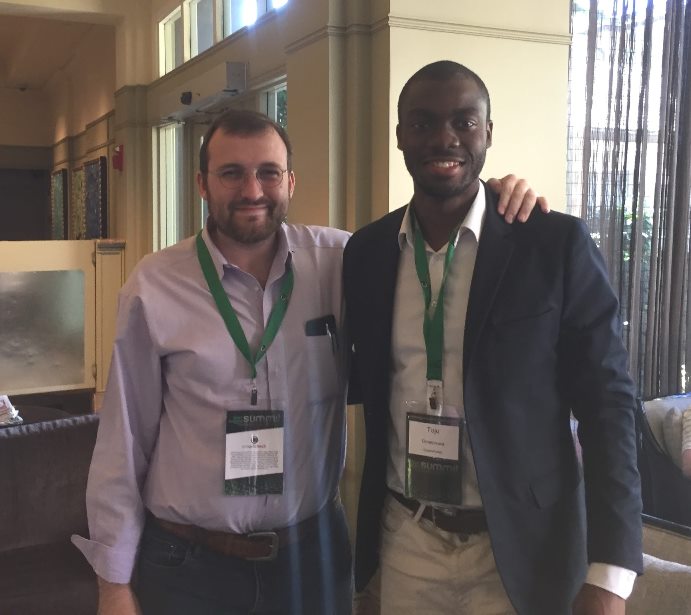
Charles Hoskinson Special Interview: In 2019, Cardano will Get Back to the Top 5 Market Cap
We recently got the chance to interview Charles Hoskinson. Charles is the Co-founder of Ethereum, the Founder of Cardano, and CEO of IOHK, a tech company committed to using peer-to-peer innovations to provide financial services to three billion people.
We discussed the events surrounding the crypto space, including the state of blockchain protocols, what makes Cardano unique, and blockchain technology potential in Africa.
A lot has been discussed regarding Cardano: How does Cardano differ from Ethereum? What makes Cardano unique, and what was your motivation behind developing the protocol?
When I was working at Ethereum, we had a lot of options about how much innovation we wanted to put forward. We created Ethereum with the idea that if we have a programming language attached to a blockchain, this could push out more complicated financial transactions and we would see what the space would do with that.
We assumed that we would see a rehash of what had been done with Namecoin, Mastercoin, and Colorcoin – that would form the dominant use case for Ethereum for the next 4-5 years. And to a certain extent, we were right.
There is definitely room to keep the innovation going, take what we’ve developed with Ethereum and architecturally break Ethereum apart. Then, develop two different independent systems: one is accounting, and the other is computation.
So basically, it’s taking the lessons we’ve learned from Ethereum and from studying Bitcoin and building a multi-layered system.
Imagine Bitstamp and Coinbase exchanges regarding Bitcoin. Right now as a user of Coinbase or Bitstamp, you have the worst of both worlds. You take your money and send it to the exchange, now they control the private keys, and you`ve lost all your privacy. At that point, it’s not a cryptocurrency for you. However, you are paying the cryptocurrency security price because the exchange’s account is exposed to every hacker in the entire world.
What if you could take your Bitcoin and send it through a side channel transaction via a permissioned ledger? It’s the same security and privacy model where you’ve already lost your security and privacy, but the main difference is that because it’s a permissioned ledger and it gets hacked, it can simply roll the transactions back. This is only the beginning.
Blockchain in the African market
Recently Cardano had been involved in blockchain adoption in Africa. Can you explain more about this?
Talking about supply chain management, right now we have an office in Addis Ababa (Ethiopia), and we are doing a lot of research on how to get coffee farmers into a blockchain setting.
The local government is quite keen on figuring out how we plan to take the million and a half Ethiopian coffee farmers and get them digital credentials. The next step is to model how coffee goes through the entire supply chain.
So, the minute you can put these farmers into an immutable ledger like Hyperledger Fabric or Enterprise Cardano, they now have a real connection. This means that you can connect to the side chain and use Cardano for lending, remittances, insurance or any of these types of financial products.
Interoperability, scalability, and governance are the three factors we`ve looked at; we have a different engineering philosophy, but we are also very competitive in the space. To achieve this, we need to have DARPA style science programs. We`ve already spent tens of millions of dollars in research, and we are about three years into the agenda.
In 2019, We Hope To Get Back To The Top 5 Market Cap
What do you forecast for Cardano next year?
In 2019, we are planning to catch up regarding functionality and utility, and at that point, we can release some protocols and show the market how it gets done.
We’re already starting to see a change in the industry from a research standpoint. For example, I was at CCS, a cryptographic conference in Toronto. Usually, you’d go there and only see cryptographers. But I saw cryptocurrency companies as well, and they were presenting their research.
If we succeed, the only way to compete with Cardano will be to emulate our engineering, which means that the software quality will dramatically increase in the entire space. If that’s our only accomplishment and Cardano doesn’t become a commercial success, that’s still great because it makes the world a better place for everybody.
Ultimately I think we’ll continue to stay very competitive and hopefully get back in the top 5 list of cryptocurrencies by market cap.

The post Charles Hoskinson Special Interview: In 2019, Cardano will Get Back to the Top 5 Market Cap appeared first on CryptoPotato.



